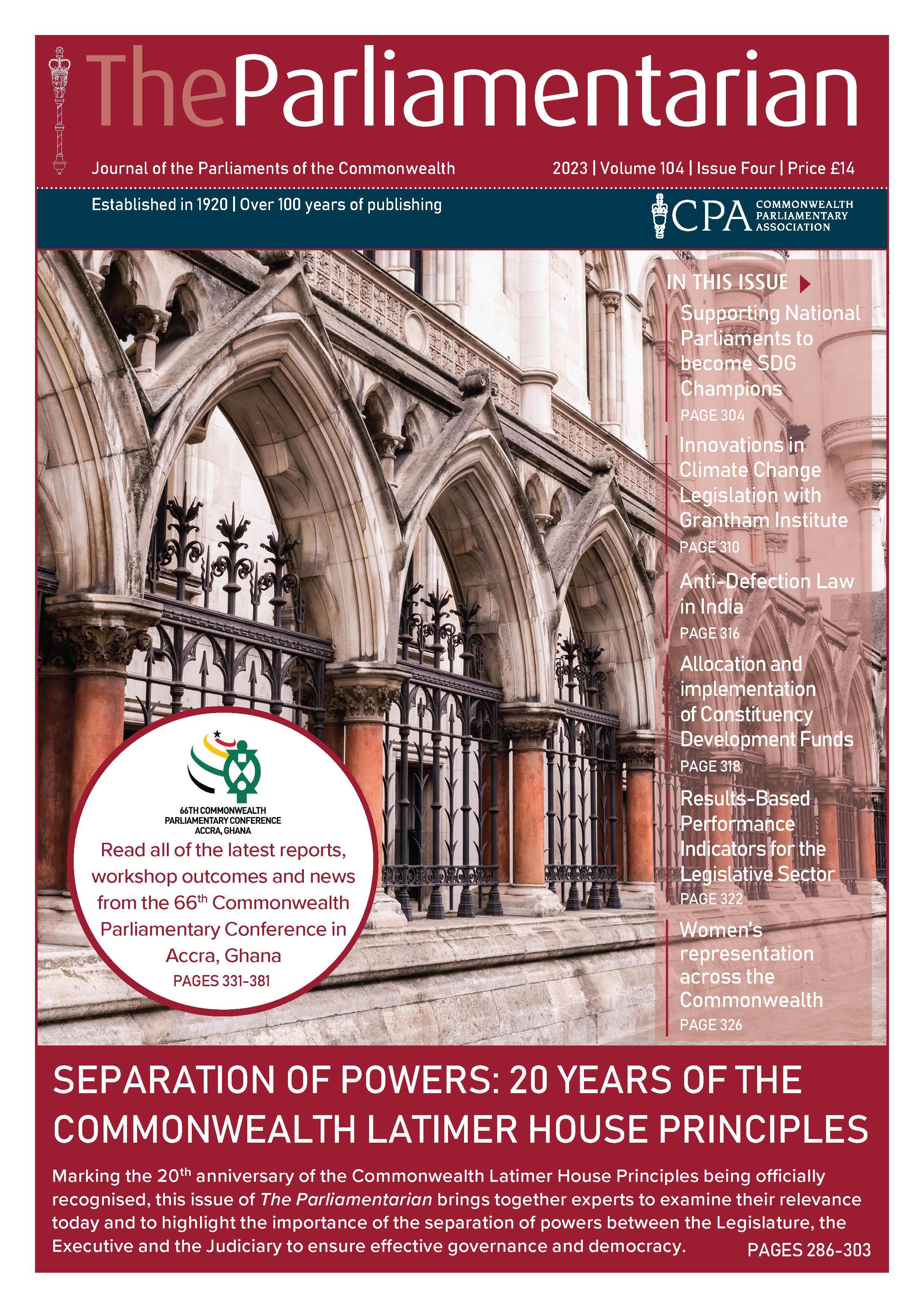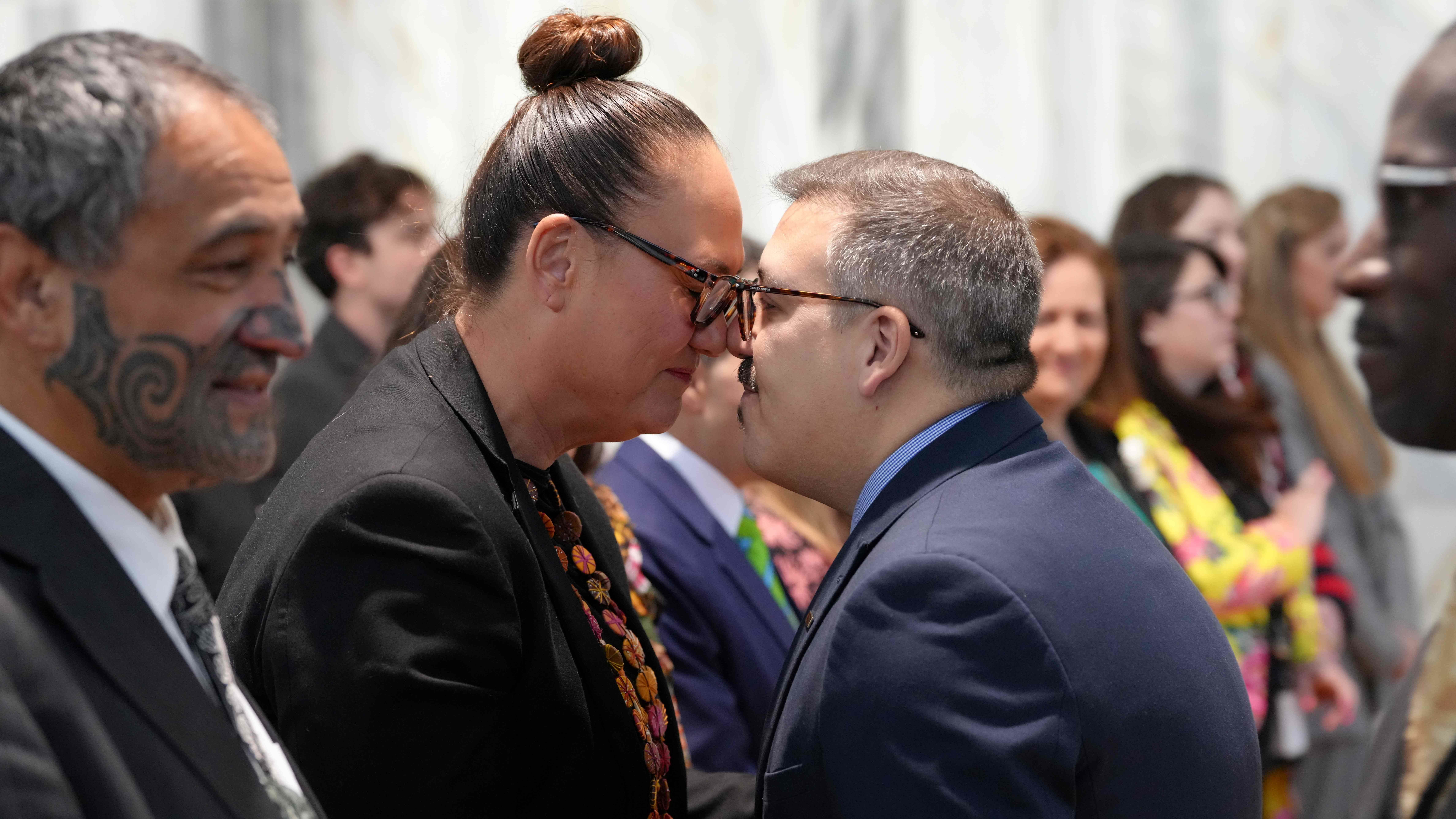Dr Daniel Aguirre, Associate Fellow at the Institute of Commonwealth Studies looks at the links between sustainable development, business and human rights in the Commonwealth context.
This article was first published in The Parliamentarian (2023 Issue Four)
Responsible business is a cornerstone of sustainable development and must be based on the rule of law, human rights and environmental protection. This is recognised in Goal 16 of the UN Sustainable Development Goals. Business is a driver of economic growth but, for this to be sustainable, it must operate within a framework of sound regulation, procedural standards, impact assessment and accountability. The Responsible Business programme at the Institute for Commonwealth Studies (ICwS) is based on promoting international cooperation, the rule of law and international human rights, and meaningful participation by civil society. The Institute sees these values reflected in - and takes inspiration from – both the Commonwealth Charter, which marks its 10th anniversary this year, and the Commonwealth Latimer House Principles on the separation of powers, celebrating its 20th anniversary.
The modern Commonwealth can be a model of responsible trade and investment for the world when it recognises that Commonwealth brings common responsibility. All States and Territories have established duties in human rights law to protect human rights and ensure that trade and investment does not come at the expense of human rights and the environment but fulfils and protects them over time. The commitment of the Commonwealth to these duties and the link to the business context was laid out in the foreword to the Commonwealth Latimer House Principles by the then Commonwealth Secretary-General, Mr Kamalesh Sharma, noting that ‘the rule of law sits alongside democracy and human rights as the key beliefs of this organisation – just as another threesome - governments, business and civil society - are its main actors.’ The Commonwealth Secretariat can support States to fulfil international legal obligations, businesses to operate responsibly and civil society to coordinate across its member States.
Business and Human Rights is an area of international law in continuous development. For Commonwealth States to fulfil their legal duties to protect human rights in this context they must ensure that national law and policy reflects international human rights obligations, that there is an independent legal system capable of implementing the law and reviewing government decisions (even if it restricts powerful business interests) in practice, that civil society has meaningful participation and that, if all this fails, victims of business-related human rights abuses have access to justice and accountability. State obligations and business duties are stated in the United Nations Guiding Principles on Business and Human Rights.[i] The UNGPs are unanimously endorsed and put forward three Pillars of Principles:
- States’ existing obligations to respect, protect and fulfil human rights and fundamental freedoms;
- The responsibility of business enterprises as specialised organs of society performing specialised functions, required to comply with all applicable laws and to respect human rights; and
- The need for rights and obligations to be matched to appropriate and effective remedies when breached.
Yet, in practice, many States are often unwilling or unable to fulfil the duty to protect, to ensure business acts responsibly and to provide remedy for victims. Both the home States, where businesses are headquartered or domiciled, and the host States, where international businesses invest, are reluctant to regulate to protect procedural rights and ensure accountability for fear of creating a hostile business environment. Some States lack sophisticated administrative or public law systems that afford procedural rights in economic planning, while others, whose domestic systems are more established, seek to roll back these powers. As a result, civil society is kept out of economic planning and business decision making while victims of abuses lack effective access to remedy.
Many States hosting multinational businesses have been forced into a regulatory race to the bottom to attract investment resulting in a ‘resource curse’ in which the benefits of development have not been shared equally. Labour rights abuses are common, people are forcibly evicted from their lands and the extraction of natural resources results in environmental degradation that undermines livelihoods while businesses reap profits. Some judiciaries are as likely to persecute human rights defenders and environmental activists as they are to hold business accountable to national and international human rights standards.
Home States, in which the businesses are headquartered, have often failed to ensure their businesses operate responsibly abroad, nor have they ensured that victims of abuses have access to justice. They allow business to indulge in complex tax avoidance schemes that deplete public resources. They do not put human rights or environmental conditions on the export financing or insurance that facilitates foreign investment. Diplomatic trade and investment missions focus on quantity over quality, ignoring the potential negative impacts that business can have on human rights and the environment to promote economic growth at all costs. These States are reluctant to regulate business abroad or even require human rights and environmental due diligence reporting for fear of putting their business at a competitive disadvantage.
While some progress has been made on the State duty to protect and the business responsibility to respect human rights, the UNGP’s pillar three on access to remedy is often referred to as the forgotten pillar. The 20th anniversary of the Commonwealth Latimer House Principles provides an opportune moment for the Commonwealth to reflect on access to justice for victims of business-related human rights abuses. The right to effective remedy is already a fundamental human right. If realised, the right would alleviate business-related human rights abuses and would promote sustainable development across the Commonwealth. Progress notwithstanding, legal accountability and access to remedy require international cooperation and the Commonwealth can lead such efforts.
The Commonwealth can make clear that access to remedy is a legal obligation of member States and that non-binding arrangements and other guidelines are secondary to this legal obligation. The Commonwealth can encourage cooperation on plans to implement the UNGPs along with the Commonwealth Latimer House Principles. It can build the capacity of key partners like civil society, businesses, legal practitioners, judiciaries and the Executive and Parliamentary branches of government. The focus must be on addressing impunity, examining the legal obstacles – including the harassment of human rights defenders – and the development of measures to ensure the courts are able and willing to hold business accountable for human rights abuses. It can develop the extraterritorial obligations of home States to regulate business abroad, the role of international cooperation on human rights and the environment as well as anti-corruption measures and civil society engagement. Initiatives undertaken to promote responsible investment will not ensure access to remedy where the rule of law is weak, the legal system underdeveloped and the judiciary unable to perform its duties independently.
Responsible Business is looking for support from Commonwealth States. State officials and staff should be able to provide guidance on respecting human rights, protecting the environment and sharing best practices across the Commonwealth. Government officials should advise on human rights due diligence, environmental impact assessment and how to consider effectively issues of gender, vulnerability and/or marginalization, recognising the specific challenges that may be faced by indigenous peoples, women, national or ethnic minorities, religious and linguistic minorities, children, persons with disabilities and migrant workers and their families. They should be able to help business deal with the complexities of investment in conflict affected or unstable environments.
State officials often assume that businesses invariably prefer, or benefit from, a light touch and deregulation, but responsible businesses want legal and policy certainty and look to government officials for guidance on risk assessment, mitigation strategies and on how to meaningfully engage with local stakeholders. Most diplomatic and ministerial staff are focussed on increasing investment rather than on sustainable development and the State duty to protect human rights. Diplomatic and Consular Staff as well as staff from government departments that facilitate trade and investment need to keep abreast of legal developments in this field. Government officials should identify new law and policy as well as review existing laws to ensure they are aligned with their human rights obligations. For example, law and policy related to the use of land and the creation and operation of business enterprises have implications for human rights that remain poorly understood. These laws should provide procedural safeguards and accountability mechanisms. Government officials should provide sufficient guidance on how these laws operate to enable business to respect human rights.
There are increasing legal requirements for businesses to report on how they are conducting human rights due diligence. Businesses want clarity from governments on how they should do so. State encouragement of, or where appropriate requirements for, such communication are important in fostering respect for human rights by business enterprises. Policies or laws in this area can usefully clarify what and how businesses should communicate, helping to ensure both the accessibility and accuracy of communications. The Commonwealth could be a leader in this field by adopting HRDD (human rights due diligence) reporting requirements for business operations across its membership in line with the Commonwealth Charter’s commitments to human rights, rule of law, sustainable development, protecting the environment, the recognition of the needs of small and vulnerable states and the role of civil society.
As a multilateral organisation of 56 member states with well-established political, business and civil society networks, the modern Commonwealth is in a unique position to promote and build upon the international cooperation required for responsible investment and sustainable development. Promoting policy and legislation in line with human rights law, independent judiciaries that provide procedural guarantees and accountability, and meaningful participation of a strong civil society creates a meaningful link between the Commonwealth’s work on trade and economy, democracy law and government, and environment and climate change. The 20th anniversary of the Commonwealth Latimer House Principles presents a key moment to put in place concrete and meaningful measures for it to become a model of responsible trade and investment.
Part of the School of Advanced Study at the University of London, the Institute of Commonwealth Studies sits at the crossroads of research, policy, human rights practice and international relations. The Institute has three primary areas of focus: strengthening the rule of law; combatting climate change; and promoting freedom of expression and digital rights. The Institute’s Library is an international resource with particularly impressive Caribbean, Southern African and Australian holdings with over 190,000 volumes and 230 archival collections including resources on Nelson Mandela and the Ruth First papers. For further information please visit www.commonwealth.sas.ac.uk.
References:
[i] https://www.business-humanrights.org/en/big-issues/un-guiding-principles-on-business-human-rights/
Return to the CPA blog series: 'Commonwealth Latimer House Principles 20 Years On: 'Power of Parliaments'
Follow the CPA on social media to continue the discussion.





